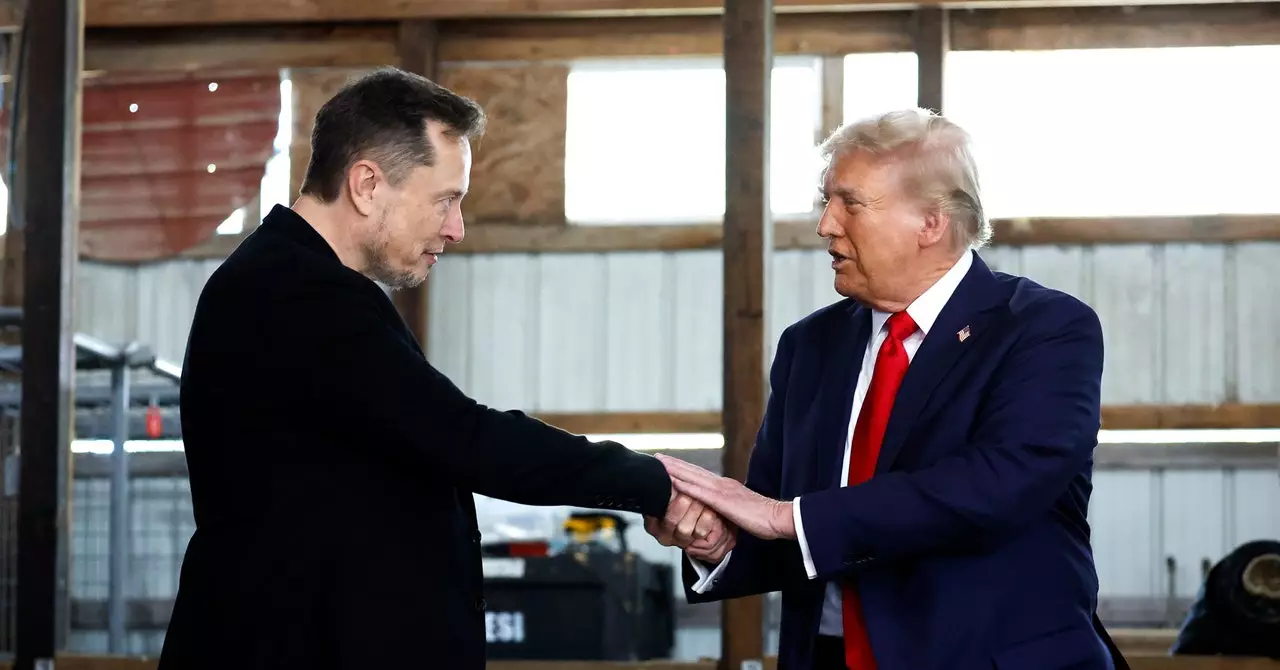Eight years have passed since a significant political earthquake rocked the United States, profoundly impacting myriad sectors, including technology. The day after Donald Trump’s initial election, the small editorial team at Backchannel faced a poignant dilemma: how to process an electoral outcome that felt alien to their core narrative surrounding technological progress. In response to the bewilderment, a senior editor suggested that focusing on technology might seem disconnected from the current climate. This sentiment compelled a thoughtful reconsideration of our mission; thus, I penned a column that not only engaged with the collective frustration but also aimed to assert the necessity of continuing our chronicling of technological advancements. The underlying premise was simple yet profound: no matter the political upheaval, the story of the technological revolution remains paramount.
As I reflect on those times, the conviction lingers that transformative tech innovations—ranging from microprocessors and neural networks to the pervasive influence of mobile devices—are reshaping human existence. This notion is underscored when examining not just Trump’s presidency, but the overall political landscape’s fickleness. Disruptive leaders may come and go, yet the relentless march of technology persists, subtly reframing the contours of everyday life and, potentially, human identity itself.
This week, Trump’s ascension to the presidency once again reignites debate about democratic values and long-term national integrity. Observing this political landscape, one is compelled to remember that resilience and innovation characterize this era. Future historians will likely mark this epoch as a definitive transformation where technology, particularly Artificial Intelligence (AI), took center stage, irrespective of the tumultuous political backdrop. In this light, the question arises: will society remember this political figure as merely a footnote in a vast technological narrative?
Drawing from Stewart Brand’s ageless wisdom, it is clear that while human nature exhibits stability, scientific progress is relentless, reshaping the world irrevocably. This perspective reinforces the necessity to prioritize technology over transient political dramas. My pivotal assertion from 2016—the overwhelming significance of AI—resonates even more strongly today. It is imperative, however, to strike a balance by diligently covering the ramifications of political decisions on technology.
In the coming years, the political dynamics will undoubtedly influence tech development. The pressing issues surrounding healthcare, civil rights, and regulatory frameworks will shape not only our immediate experiences but also the technological landscape that defines our future. The interplay between political leadership and the tech sector is intricate; history shows that governmental policies often drive technological advancements. For example, the establishment of the internet, largely a governmental endeavor, exemplifies how policy can significantly affect tech evolution.
The ongoing discourse about AI regulation exemplifies this complex relationship. With concerns proffered regarding the potential influence of individuals like Elon Musk—who, as a close advisor to Trump, wields considerable sway over AI initiatives—the stakes are high. The nation grapples with profound questions: Should there be stringent regulations on AI, considering the implications it poses? How will the next administration approach the existing executive orders on AI implemented under Biden? The urgency of these discussions cannot be overstated.
As the narrative unfolds, it is critical to engage with the voices within the technological community. Following the recent electoral developments, I immersed myself in dialogues with leading AI professionals, embarking on a quest to comprehend the trajectory of this technology amidst the political turbulence. The juxtaposition of these conversations against the political backdrop offers a unique lens into how the tech sector perceives its role within a rapidly evolving landscape.
Despite the emotional turbulence tied to the recent election, the commitment to exploring the technological domain remains steadfast. With a heart weighing heavy from political anxiety, I turn my focus back to technology. While the next few years will likely see serious repercussions stemming from political developments, the potential for AI and other technological innovations to transform society remains an enduring and hopeful narrative.
The story of technology is far from being eclipsed by the political saga. While journalists must hold politicians accountable and convey the impacts of their actions, the pursuit of understanding how technology will shape humanity’s future must persist. As we confront an uncertain future, the promise inherent in technological discovery offers both a refuge and a beacon, guiding us through turbulent times. AI, undeniably, remains the most significant story of our era, demanding our attention and vigilance as we aim to navigate this intricate landscape of progress and power.

